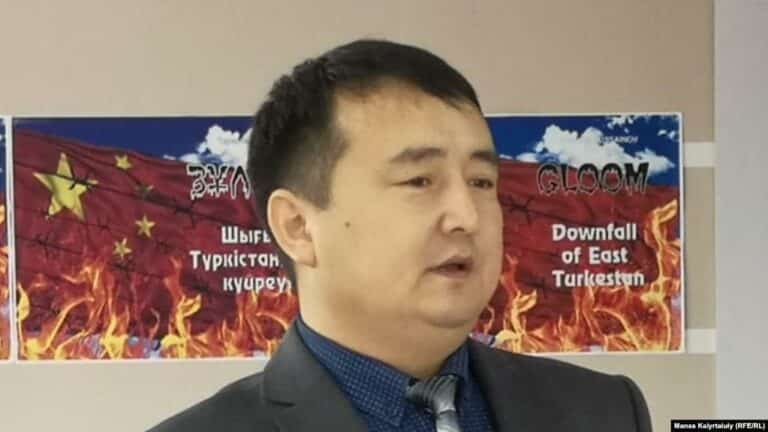(ChinaAid, Midland, TX) According to ChinaAid sources, prominent human rights activist Serikzhan Bilash may be put on Kazakhstan’s most wanted list. The following is a translated article from the Russian publication of Radio Free Europe:
A court in Kazakhstan may put Serikzhan Bilash on the most wanted list. Serikzhan is known for protecting the rights of ethnic minorities in Xinjiang. The probation service appealed to the court with a submission, where it is asking to declare the activist wanted and to choose a measure of restraint.
The submission was only recently, and the court has yet to make a decision. So far, a decision has been made to appoint a lawyer. “The issue of a search will be considered on December 14,” Zukhra Akramova, a representative of the Alatau District Court of Almaty, said on December 8.
Serikzhan Bilash’s lawyer Shynkuat Baizhanov said he would be able to comment on the case after reviewing the materials.
Serikzhan Bilash himself, the founder of the Atajurt, a group defending the rights of ethnic Kazakhs in Xinjiang, has faced criminal prosecution in Kazakhstan and now lives abroad. He believes that what is happening is an attempt by the authorities to intimidate the public.
“Personally, I believe that the authorities are once again trying to intimidate people. They can strip me of my citizenship. In addition, I believe that by probably terminating the second case (under the article ‘Arbitrariness’) , they apparently seek to demonstrate to the West a false image that Serikzhan was not persecuted in Kazakhstan. On January 21, the day after my arrival in the United States, they dropped the criminal case under Article 174, which was initiated in 2020,” he said.
Serikzhan raised the issue of the persecution of ethnic Kazakhs in Xinjiang while living in Turkey for some time until the fall of 2020. In April 2020, a criminal case was opened against him on charges of “desecration of the state flag” and “inciting discord”. Several organizations filed lawsuits. The second criminal case, under Article 389 (“Arbitrariness”), was initiated at the request of former colleagues.
The activist said earlier that he would return to the country if his legal rights were restored and if the authorities provided written guarantees that no cases would be initiated against him. However, he added that he would not stop talking about the harassment of ethnic minorities in Xinjiang. Earlier this year, the activist’s lawyer said that the police had dropped the case against Bilash “for inciting discord” for lack of corpus delicti.
In 2019, Serikzhan Bilash was sentenced to a fine on charges of “inciting discord” after a plea agreement. The court banned him from leading public associations for seven years. Bilash, who was under house arrest during the investigation and trial, said after the verdict that the agreement with the prosecutor was a “forced measure.” He added that as a person who told and documented the persecution of Uyghurs, Kazakhs, and other Turkic-speaking ethnic groups in China, he was “turned his mouth shut.”
The trial attracted the attention of the public and the international community. Human rights activists accused the authorities of obstructing the work of activists, raising the issue of ethnic Kazakhs in China. Last year, the UN Working Group on Arbitrary Detention considered the detention of Serikzhan Bilash in March 2019 to be unlawful.
For several years, China has been accused of carrying out repression against the indigenous ethnic groups (ChinaAid note: Uyghurs, Kazakhs, and other Turkic Muslims) of Xinjiang, mainly professing Islam. In 2018, the UN reported that at least a million Muslims in the region had been forcibly placed in “political re-education camps.” In Western countries, at the state level, what is happening is increasingly equated with cultural and demographic “genocide”. Despite numerous eyewitness accounts and documentary evidence, China rejects these accusations, calling the policy in Xinjiang measures to combat terrorism and extremism.

